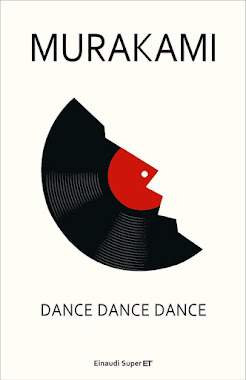DANCE DANCE DANCE. A hommage to sleepless nights.
Handing in my statistics exam, I was off for a well-deserved two-week break from school. I decided to read through yet another book from my sweetheart Haruki Murakami. After reading through The wind-up bird chronicle and Norwegian Wood and after disappointment from Pinball 1971, I was intrigued to see where I would assert his book DANCE DANCE DANCE. Fortunately for Murakami, it exceeded my expectations. It landed up being second, if not my favourite book from him.
The book begins with a bemused narrator who explains a doomed romance story in the so-called Dolphin Hotel. Even though years have passed, the past memories seem to haunt him, and he feels a strange need to turn his life around and revisit the hotel. What follows is a twist and turn of bizarre characters and destinations, which make the reader want to pack his things up and leave for a holiday destination.
What I find personally discouraging from reading yet another Murakami book (and DANCE DANCE DANCE is not an exception, sadly) is that the plot of the book becomes very repetitive at times; compared to his previous novels, it could be argued that it brings little new on the plate. The main character -yet again - becomes lost in his daily existence, has casual sex with plenty of women, and there is suicide committed.
However, what is especially remarkable and distinctive in this Murakami's piece is the ruthless critique of consumerist society as we know it. His postmodernist critique of things falling apart (this can be seen best in the example of Dolphin Hotel, where parts of the plot happen) and being replaced by the new, shiny, yet somewhat disturbing versions and ideals. This is also apparent from the behaviour of individual characters - the shiny handsome movie star Gotanda is condemned to play charming dentists and doctors for the rest of his life, writing everything off expense accounts. Or doomed writer Hakiru Makimura, allegedly a mocking version of Murakami himself, who seems to solve every problem with a sufficient money transaction.Another critical aspect of the novel is the need for closeness that the main character experiences. Presenting himself as the person of "little emotions", he nonetheless begins a romantic relationship with a receptionist at the aforementioned Dolphin Hotel, Yumiyoshi. My favourite part of the novel entails his emotional need to have Yumiyoshi by his side. Arguably enough, never before have I seen this kind of closeness and intimacy than in DANCE DANCE DANCE.
Overall, plenty of aspects in the novel disappointed you, such as repetitive aspects compared to his previous books and short stories. Nevertheless, Murakami opens himself in a new light that you could possibly never see before in any other different novel, thus making it worth the read. The book surprised me nicely, as I did not give it too high expectations, so I hope it will work out the same for you too :)

Komentáre
Zverejnenie komentára